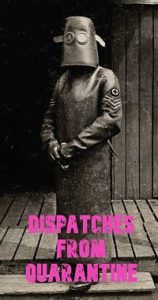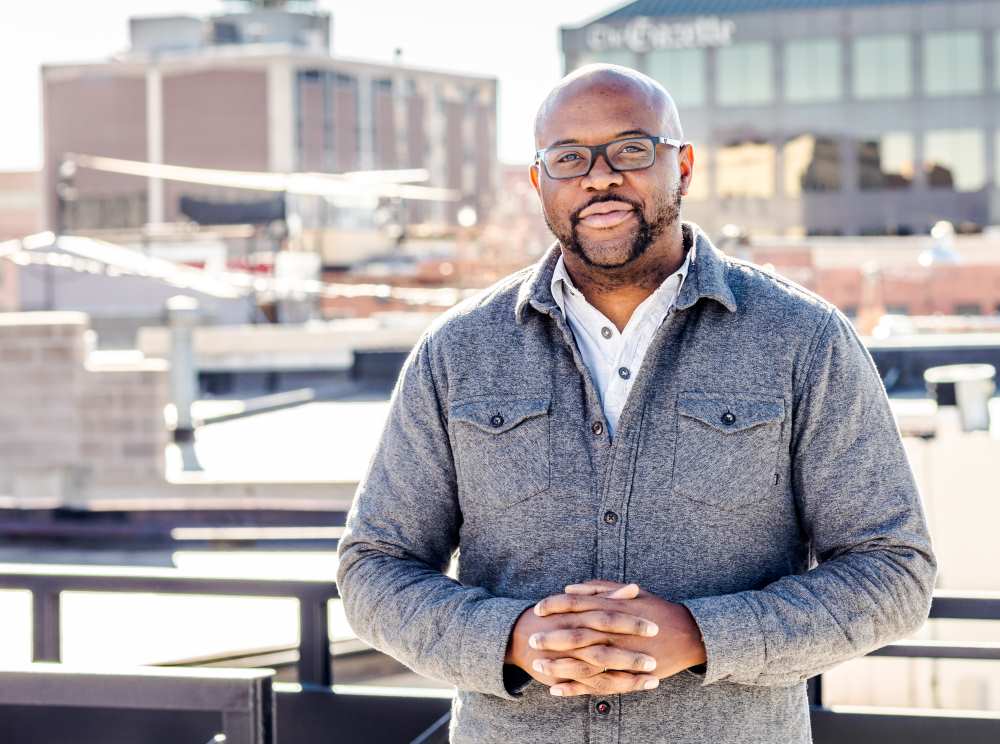 Lights up on a freshly opened laptop or heavily sanitized smartphone screen
Lights up on a freshly opened laptop or heavily sanitized smartphone screen
The scroll begins, and down the timeline we go
In the quick-moving montage, we make out podiums, government seals, slug-line titles of officials
WHO, CDC, clickable declarations, predictions
This will go on till April, till May, till July, till August
Enter the hordes, politely standing in line to subtly ensure the virus will not eat its way through the paper products
And though we can suppress our own despair long enough
we know somewhere a harmony of anxiety low-ends this production
(don’t worry, it will be drowned out with digital playlists looping your memory to better times)
Somewhere author Cormac Maccarthy is trying not to write an op-ed titled
“I tried to warn you”
As the evangelist stands assured and full of answers
But the answers seem to be in quarantine
And the numbers and percentiles climb
And the candidates search for blame
As the skeptic stands assured and full of theories
Every other email has COVID-19 in the title
The others are regretting to inform that fill in the blank will be cancelled or postponed or
Something about it happening virtually
A family of five working daily to give each other space and light and quell the long fingers of anxiety at both shoulders
Enter: your son’s teachers via email with hope and optimism
And your son asking for snacks, for education, for clarity
And the inner monologue begins—
The cynic who for the purposes of this play is muzzled
The responsible adult who will be portrayed with a Midwestern sensibility and will vomit adages
“One day at a time”
“You can’t eat the entire buffet in one pass”
For the purposes of this play the plate is small and the servings are to be savored slowly
And during grace, as thanks are given, remember a special prayer for the dependability of the internet.
We playwrights cannot craft any psychological drama that rivals the complexity of the one we are individually writing within the black box of our own mind.
I am searching for a proper analogy.
At first I said we were on an intermission, albeit the drama of which we are a part is of much higher stakes than whether Romeo and Juliet will love forever or Berniece will sell the piano.
An intermission—society on pause. Time to contemplate. Stretch. Grab a drink, make a call, check in with the sitter, reflect on everything we just saw in the first part. Contemplate what will happen, the climax, the outcome, how the dramatic question will be answered. “Dramatic question” is one of those terms writers and directors and dramaturgs like to toss around. It is the question posed indirectly, the source of our suspense.
But this ain’t the intermission. It’s the show. On this stage, in this world, we, the men and women who are merely players, in our various roles, are waking daily in different plays all together. This is the moment where everything changes. We are in the inciting incident.
“The inciting incident” is another one of those terms writers and directors toss around, in this case to describe the moment where our story kicks off. But we all know life doesn’t follow any kind of succinct plot curve. It’s messy and irregular, circuitous and tedious. Every moment is connected to a thousand other moments, and every seemingly small incident is connected to an even more microscopic one that holds all the answers.
We often write in the linear, in an almost mathematical fashion. Because 1 happened and 2 happened then we get 3. But we only hope. Things happen inexplicably. Illogic and disruption is status quo.
Over the years of juggling multiple identities, as an academic, arts administrator, organizer and mentor, it’s been a long time since I felt this squarely rooted in my “writerness.” And yet, ironically, I find myself letting go of a lot that I was taught about craft.
My dramatic question: What happens to us when we can’t avoid that tight, white-knuckled grasp on the present? What stories do we tell ourselves to distract from the moment by moment possibility of the inexplicable death, pandemic, illness, the sudden pivot?
We are still in the wild. And the natural world has just reminded us of that. So what is the role of the natural world in our safe living room plays?
That’s what it is. To be a playwright means something different—don’t ask me what in the hell—but there is no “after this.” There is only the moment. To be a playwright now is to write about our condition for whatever platform that’s available. Right now that platform lives inside our bodies.
Idris Goodwin is a multidisciplinary arts leader and creative community builder. Across two decades he’s forged a multi-faceted career as an award-winning playwright, Break Beat poet, director, educator, and organizer. He is the new director of the Colorado Springs Fine Arts Center at Colorado College.


